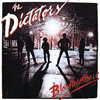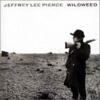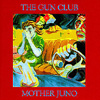|
|
|
||
| home | table of contents |feature | record reviews | live shows | news | events |archive | record label | links | contact | ||
|
The eerie cover, picturing Pierce in black and white, staring into the distance with a shotgun slung over his shoulder, gives as much of an indication of the thematic material inside as much as the session musicians do the musical material. While the polished music could use a little grit at times, the lyrics are the opposite. While Pierce continues to sing about some of his favorite themes - murder, sex, pain, failure, debauchery, drugs, and prostitution, the murder part of the equation is accentuated. The first song, “Love and Desperation,” displays Pierce’s significant progress as a singer, songwriter, and guitarist - containing a few of his best lines (“somebody hurts you, so you hurt me/who hurts somebody else, why on down the road/who hurts somebody else who goes on home… with you). Starting out almost as if it is might become a no-wavey Contortions type of song, “Love and Desperation” quickly moves into its pop/ska foundation. Pierce’s guitar solo, while showcasing his ability, contains no small amount of cheese. “Sex Killer” is a beat oriented 1980s pop number whose the title gives away the subject matter. “Cleopatra Dreams On” is almost R.E.M.-ish but contains some of Pierce’s best Television-style guitar lines. With its walking bass, “Sensitivity” is jazzy and interesting despite the production. Just in case you were confused about Pierce singing a song about this subject, the chorus is: “Sensitivity is not in you and not in me.” Next, the rootsy “Hey Juna” picks up the pace with another walking bass line and big ghostly production. The lyrics, sung in English, Japanese, and Spanish, phrased and themed in the style of Willie Dixon’s “Wang Dang Doodle,” mention Baby Romi (Mori, his girlfriend at the time), Murray the Man (Mitchell, a friend from the Fur Bible and Siouxsie and the Banshees), Kid the Squid (Congo Powers, best friend and Gun Club band-mate), and Nick the Cave (I’ll let you guess this one). Asking, “is it uptown or down… yellow, black or brown… Chinatown or funkytown?”, the INXS new wave “Love Circus” declares, “we haven't seen anyone dead like you / since a war was near.” As Pierce concludes “you got a price that is not so nice / you got demise written on your mind,” one can’t help but wonder if the singer was directing these lines at himself. “Wildweed,” the punk number on the record, is the story of a man who kills his wife and children so he can no longer hurt them. Not “The Stranger,” the protagonist sets the house on fire and heads to Mexico. While the song suffers a bit from the sterile production, Pierce’s spazzy solo deserves special praise. With “The Midnight Promise,” Pierce ends the album as he began it – with a Jamaican-tinged pop song. The chorus is very Television, or even, The Las Vegas Story. In addition to perhaps the best music here, “The Midnight Promise” also contains some Pierces most interesting and perverse imagery (“your breathe on the window rings the note/ you’re always coughing from the smoke and hatching children in your throat”). This one is about an East Village junkie prostitute. The only hitch is that the guitar, played a bit like Tom Verlaine, somehow comes off like a cross between late-period David Gilmour and Stevie Ray Vaughan. Pierce redeems himself at the ending as the song fades into a solo acoustic Mississippi John Hurt style instrumental part. The most interesting part of the CD is the bonus tracks. “Open the Door Osris” is a Burroughsy poem accompanied by a rough almost jazzy fluit. “The Fertility Godess” is all spoken word delivered a bit like Ed Sanders. The fertility godess, as it turns out, is a speedfreak (“I know she’s been awake for weeks… her skin a grey corpse banner – the flag for all of the amphetemine nations of the world”). “Portrait of the Artist in Hell” is a free jazz punk rock number with insane feedback and screaming. “Chris and Maggie Meet Blind Willie Johnson at a James Brown Concert” is, as promised, a conversation over, as promised, a James Brown groove. There are a number of good songs and good ideas here. I think my problem is primarily the production. But for those who like the eighties pop and new wave sounds, I would recommend this. This of course is also a must for rabid Gun Club enthusiasts.
© New York Night Train , 2005
|



